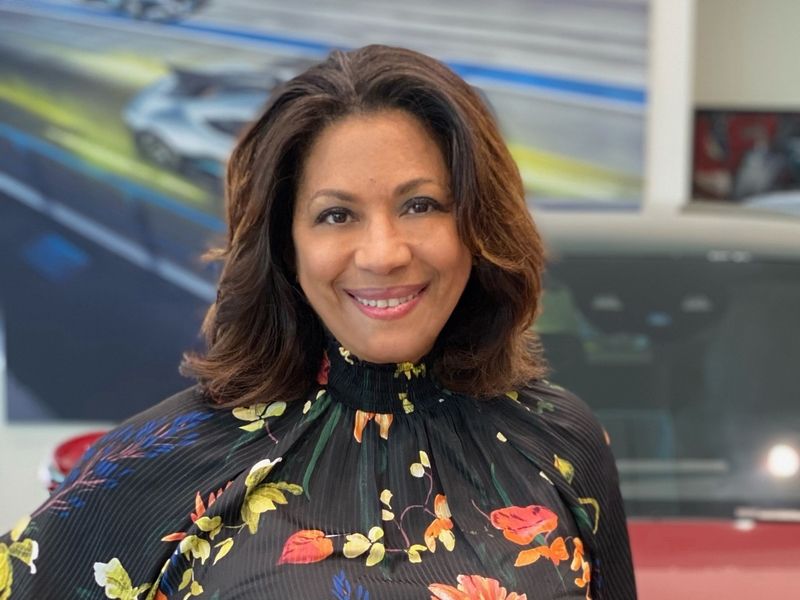
When Grené Baranco’s parents, Gregory and Juanita Baranco, moved to Atlanta in 1978 to open a Pontiac dealership, they became part of the first wave of African American auto dealers in the United States.
“It was a family business from the start,” says Grené, who remembers how exciting it was to be a 6-year-old at the dealership—and starring with her parents and sister in TV commercials.
Baranco worked at the dealership as a receptionist in high school and during her college years at Georgia State University. She thought about graduate school, but her parents offered her the opportunity to become assistant to the manager at their new Mercedes-Benz store—and she couldn’t say no.
“My path was always on the sales side,” Baranco says. That included a stint as internet sales manager.
After the Pontiac dealership closed following the Great Recession of 2008-09, the family focused on that second dealership, Mercedes-Benz of Buckhead, where today Baranco is sales manager.
“I feel responsible for the success of our dealership,” she says. “I know how hard my parents worked. I think about all the dealers I grew up with, and it’s disheartening when minority dealership efforts are not continued. I’d like to see that hard work passed on to the next generation.”
Baranco is the third winner of the Ally Sees Her Award, recognizing promising young women leaders in the auto industry. To honor Baranco’s work, Ally will donate $10,000 to Meals on Wheels Atlanta, where she serves on the board of trustees.
Besides the support of her parents and dealership team, Baranco credits legendary South Carolina dealer Tommy Baker of Baker Motor Co. for making her feel at home in the industry.
“We’d go to industry dinners together, and he’d make a point of saying things like, ‘She knows more than me about the business,’ ” Baranco says. “Those positive comments were very influential and really gave me confidence that I deserved to sit in the room—for myself, not just because of my parents. I’d earned my place.”
But Baranco says it is challenging to be not only a woman but also the second generation of ownership.
“It can be tough to be the child of the dealer,” she says. “You have to prove you’re not just there to collect a paycheck. And it’s 100% harder when you’re a woman, just like it’s harder for women in any business. There are always male managers who always assume you have less experience and knowledge, that you didn’t earn your position.”
It’s critical for the auto industry to continue supporting executives who are women and people of color, Baranco says.
“From a business perspective, our customers are everybody: women and men, gay and transgender people and people of all ethnic backgrounds. If you want to understand the customer and their needs—and ultimately we’re in the customer service business—you need representation from your client base. It’s important that everyone is represented in leadership roles.”
When she comes out to meet a customer and help complete a deal at her dealership, Baranco says: “Sometimes they’re in shock to see me, a black woman. But immediately I feel a connection there—the customer knows; these people understand people like me.”
Young women should consider the auto industry as a career, Baranco says. “It’s so important for women to be a part of the car industry,” she says. “And it’s a good-paying job—you can make a great living.
“The dealership business is more understanding now for women, but it’s still very important to get a mentor. Identify a female in the industry you can talk to.
“And always be proud to represent yourself and your gender and your culture.”